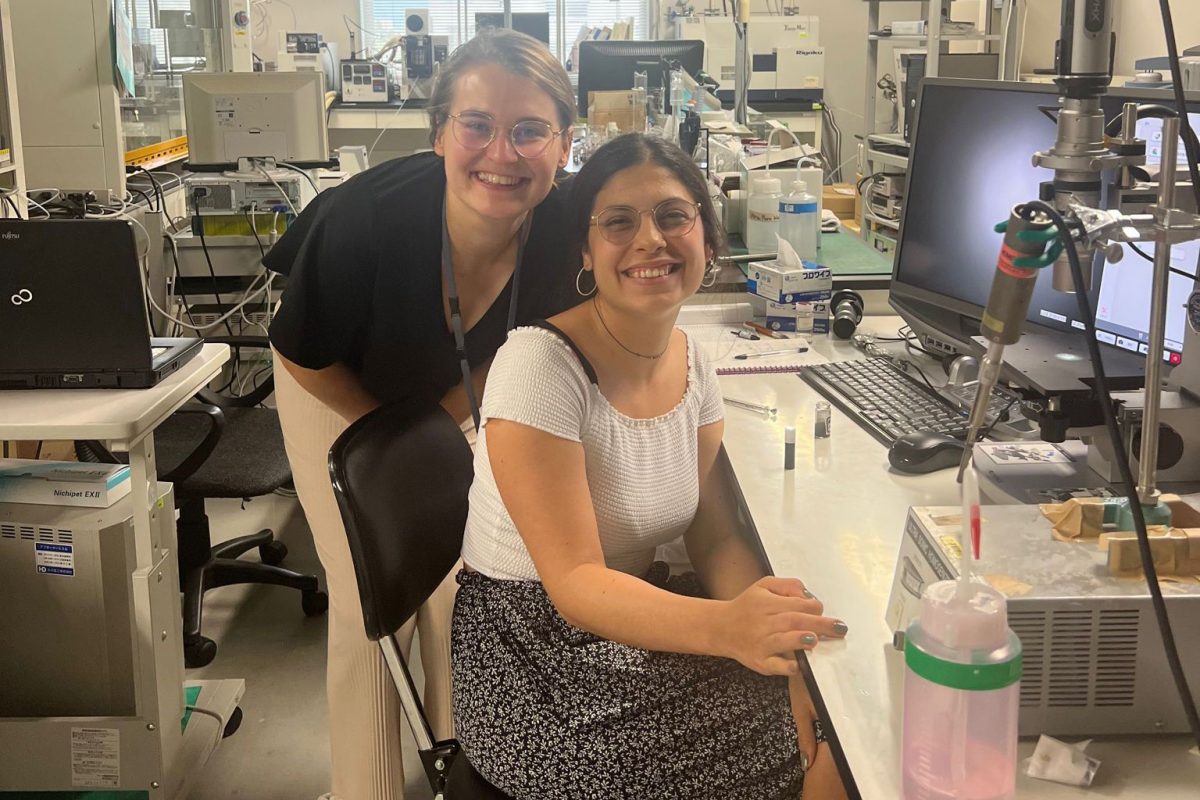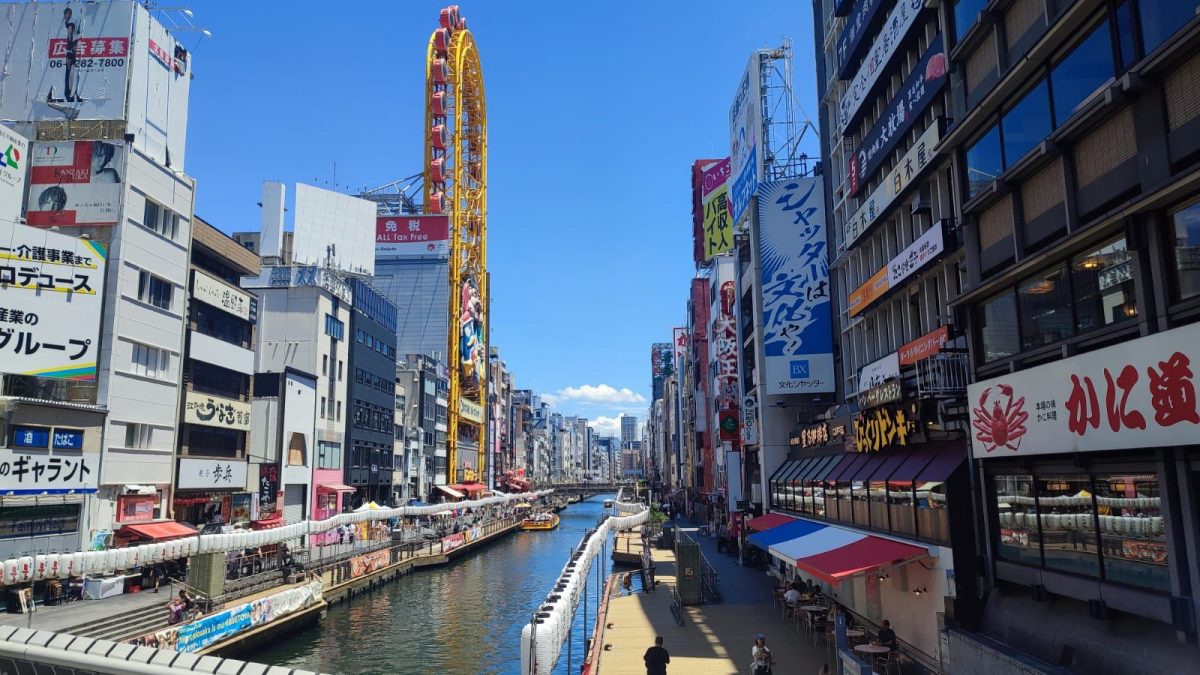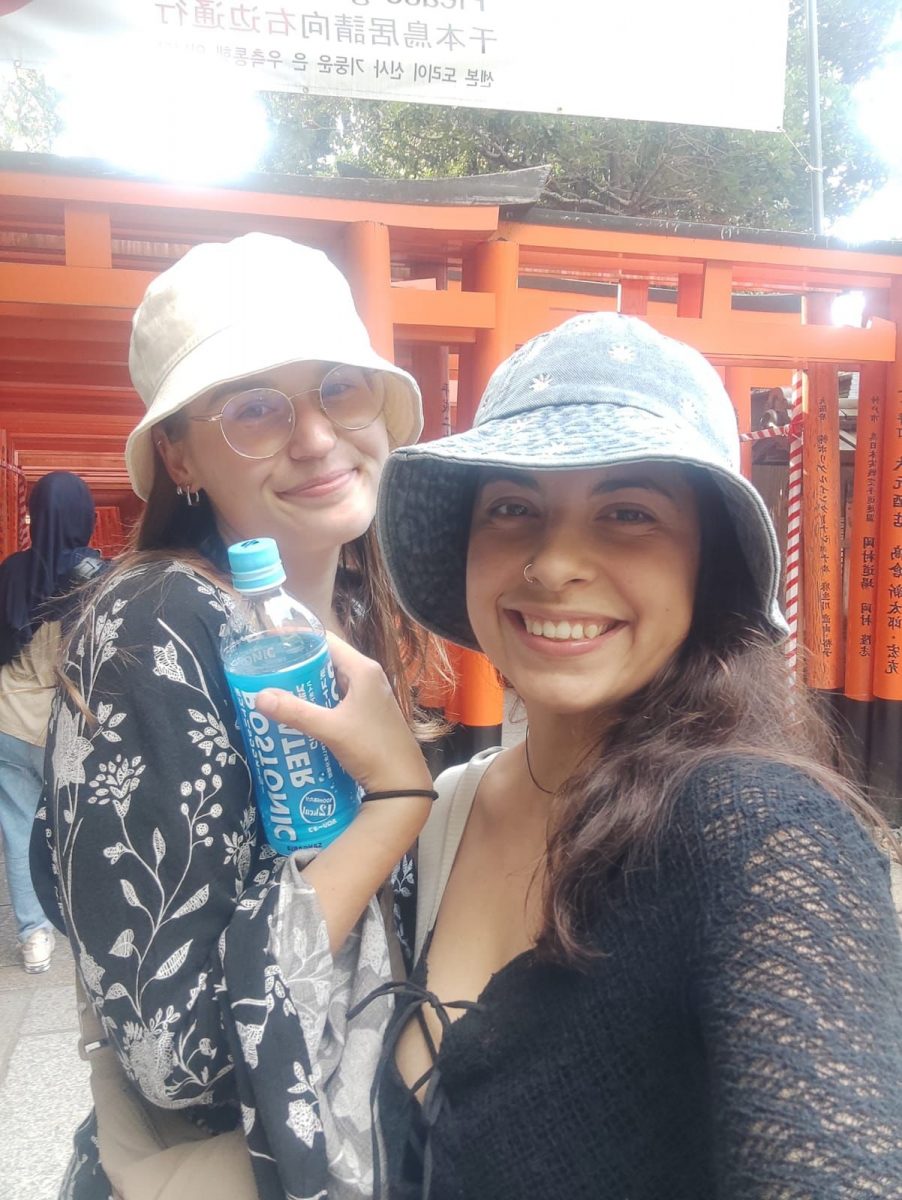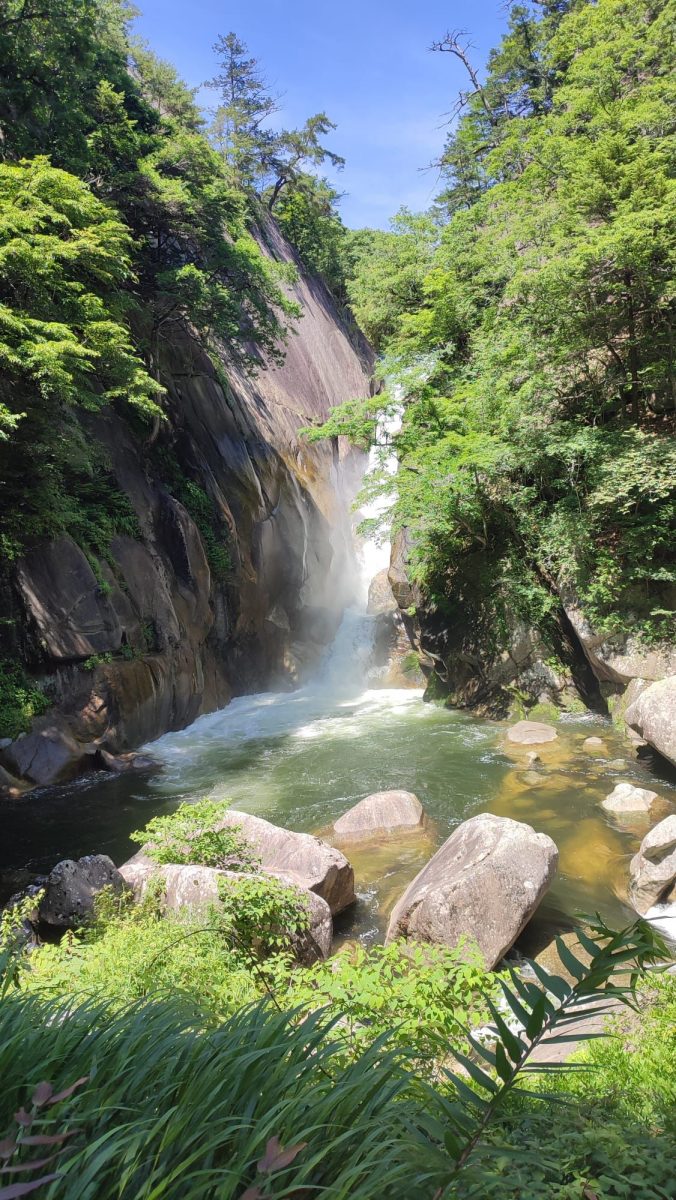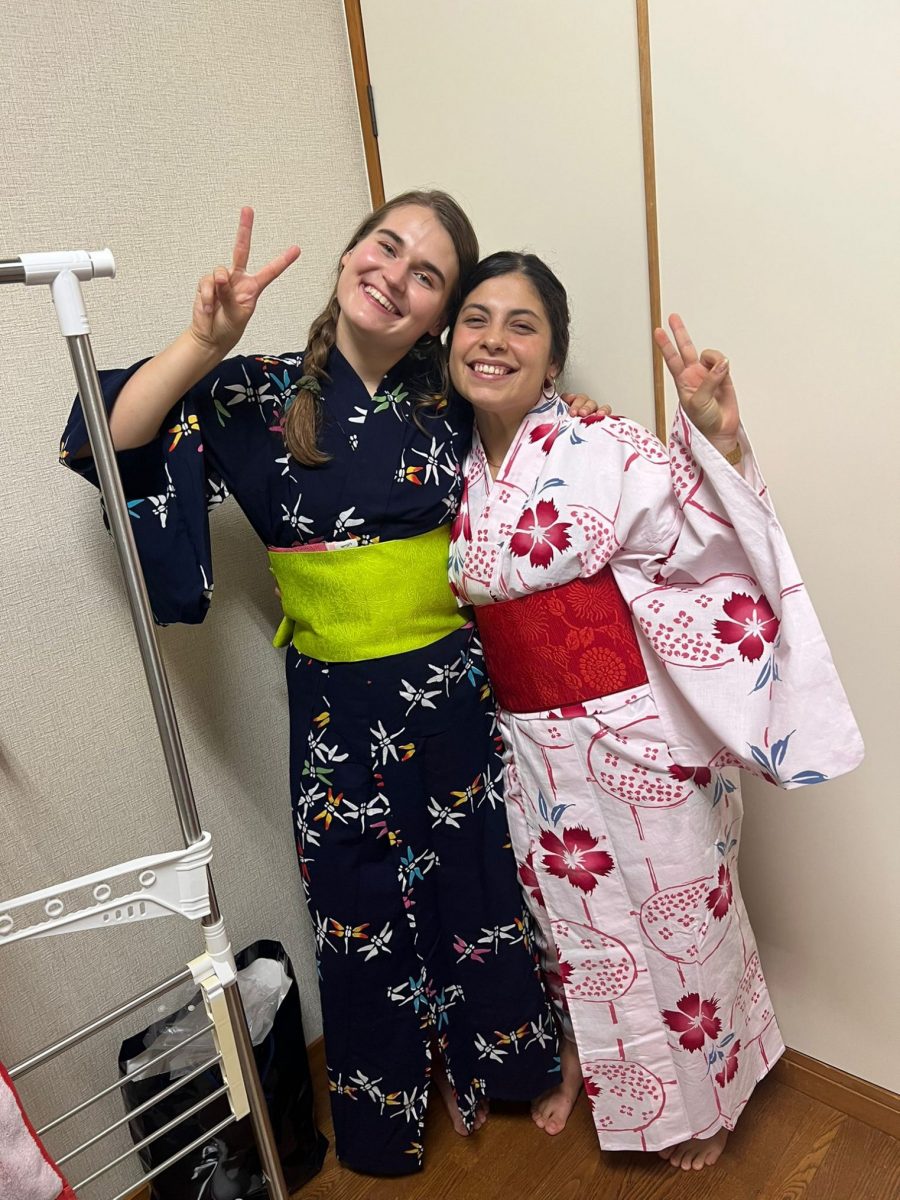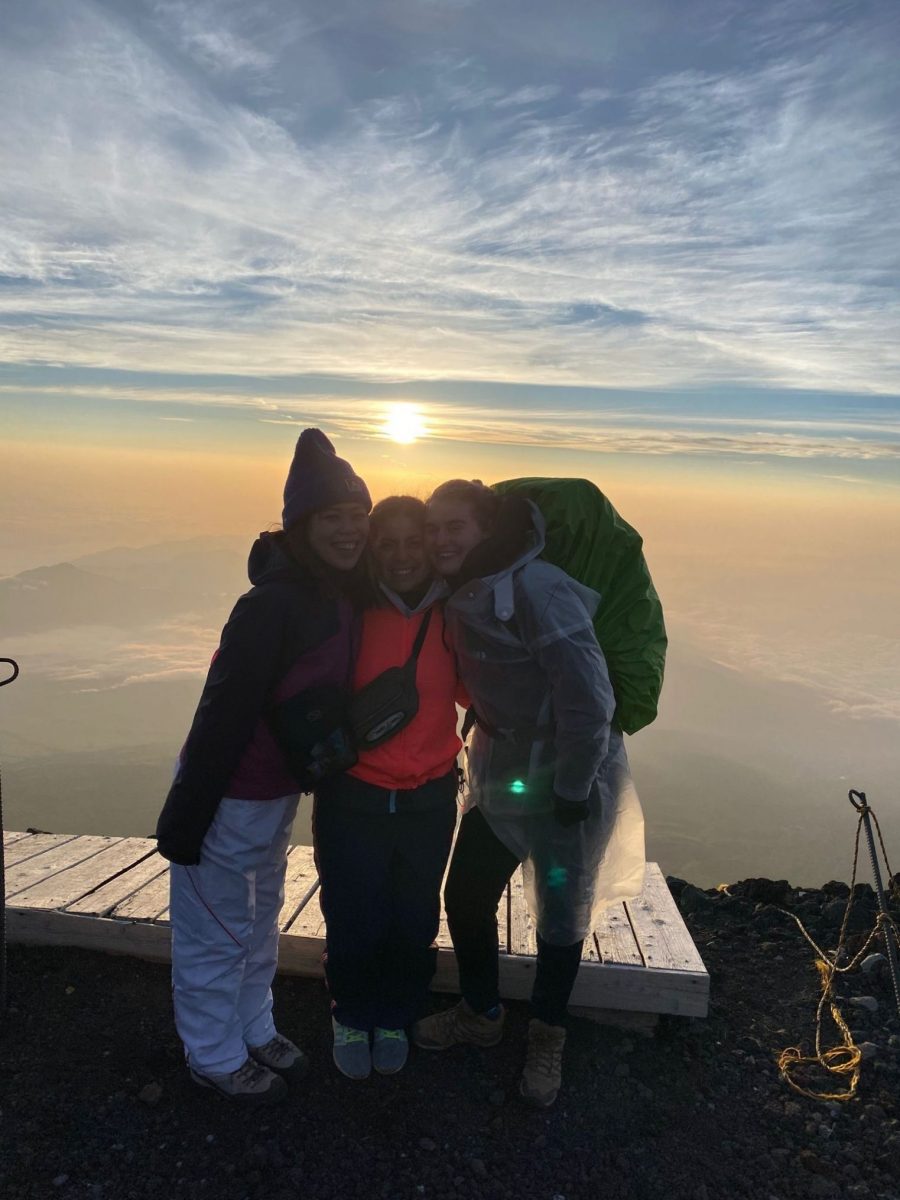Mail from … Japan Hanne Thiemann and Nicol Jaramillo report on their three-month stay in Japan
General Information
This is where we live at the moment:
In Japan/Kōfu (Yamanashi Prefecture).
That’s what we’re doing in Japan:
We are in the third semester of our Master’s degree in Sustainable Energy Technology, and we are currently writing our student research papers in the field of electrocatalysis at the Hydrogen and Fuel Cell Nanomaterials Centre at Yamanashi University. Our coursework is part of the Japanese-European Research Collaboration on New Affordable and Durable Electrocatalysts for Fuel Cells (NADC-FC).
TU Braunschweig, the University of Bern, the University of Yamanashi and the German-Japanese Green Hydrogen Material Laboratory are involved in the collaboration. Thanks to this cooperation and a PROMOS scholarship we were able to realise our stay abroad. Our special thanks go to Professor Katsuyoshi Kakinuma from the University of Yamanashi and to Professor Mehtap Özaslan, Head of the Institute of Technical Chemistry at TU Braunschweig, who made this stay possible and provided us with excellent support.
That’s why we decided to go abroad:
Nicol: I am from Colombia and have always been a huge fan of Japan. When I heard about the opportunity to do my student research project in Japan through the Institute of Technical Chemistry, it was clear to me: I have to go there!
Hanne: I had wanted to do an internship abroad for a long time, but it was not possible in previous semesters because of Corona. Above all, I wanted to experience working in an international environment and get to know a new country with a completely different culture to my own. I chose Japan more at second glance.
Local life
This is how we live in Kōfu:
We live in the international student residence in Kōfu, which is about a 15-minute walk from the university. Kōfu is a large city with a population of around 187,000, but compared to the metropolis of Tokyo, it is of course rather quiet. Everything is within easy reach on foot or by bike and people greet each other on the street. The city is surrounded by the Miniami Alps, so you always have a beautiful view of the mountains. One night disadvantage of this location in the valley is the high average temperatures in the summer months. It is often over 35 degrees and the high humidity makes it even more unbearable.
What makes academic work as a student in Japan different from that in Germany?
The Japanese work culture is definitely characterised by a strong hierarchy. Whereas in Germany you only notice a slight difference in hierarchy between bachelor, master and doctoral students, here it is omnipresent. In addition, problems are discussed more indirectly and often a “yes” actually means “no”, which requires some practice and sensitivity in daily communication. Of course, it is also a big difference that you are a foreigner and therefore cannot be as independent. Especially if, like us, you don’t understand the language and writing, you are more often dependent on external help.
Particularly typical for our country of residence is:
“It’s just like in anime!” – was probably one of most frequently uttered phrases by Nicol during our stay. And it’s true, if you’re an anime fan, you won’t be disappointed by Japan. What impressed us most was how quiet and clean it really is everywhere. Also, the people in Kōfu are characterised by their strong connection to nature, which makes everything seem even calmer. But we also got to know many other “typical” Japanese characteristics, such as sleeping on a futon (Japanese sleeping mat) or visiting an onse (hot spring), which can be found almost everywhere.
That’s what we learned here in the first three days:
Most Japanese speak little or no English. Before our stay, we took a beginner’s Japanese course to learn the basics for everyday life. At that time, we thought that, like in Germany, most people would speak English well. We thought wrong! But somehow you always manage. With hands and feet, speaking very slowly and Japanese pronunciation of words, you are usually understood somehow.
The biggest challenge during our stay so far has been …
… dealing with the cultural differences. Japan is a modern country with lots of opportunities. You can move around freely and it is very safe here. However, the cultural coexistence is very different from Germany and we first had to get to know the local customs. This includes, for example, not looking the other person directly in the eye, bowing to greet someone – if the other person is in a higher position, you should always bow lower – and always giving older people the right of way. Also, you should not overtake people if they are walking slower in front of you, as this is considered rude.
That’s what we take home with us:
Definitely a better understanding of Japanese culture and, of course, lots of great new impressions and experiences. Japan has a very good public transport system, so it is easy to travel around by bus and train. We climbed Mount Fuji, visited Osaka, Kyoto and Tokyo and went on many other great excursions.
Good to know
This is a local dish you definitely have to try:
Sushi! It’s well known, but here in Japan it’s a completely different experience. In particular, we would recommend a restaurant with a suhsi conveyor belt, where you pay by the plate. We also recommend okonomiyaki (Japanese pancake with cabbage and vegetables), takoyaki (deep-fried octopus balls) and of course ramen.
A small tip: Japan is not necessarily suitable for vegetarians and vegans, as almost all dishes contain meat or at least fish. However, if you speak enough Japanese or have someone with you to translate, it is possible to get a vegetarian dish.
What are the blunders to avoid in Japan?
Faux pas lurk around every corner in Japan. But we do have one recommendation: When in doubt, always take off your shoes! Whether you’re in a laboratory, hotel, hostel or at someone’s home: always take off your shoes before entering an interior room. In Germany, for example, you would only take your shoes off in your hotel room, but in Japan it is an absolute must to change your shoes before entering the lobby. It doesn’t matter what class of hotel it is. It is particularly remarkable that there are also extra shoes for going to the toilet. So make sure you change your shoes before you go to the toilet. Don’t worry, everywhere you go you will find slippers to go inside or to the toilet.
This is a tip we give to other students who want to go abroad:
Don’t stress or worry too much. Once the basics are sorted out, everything will work out somehow. Japanese people are very friendly, helpful and reliable. So if an agreement is made, it will be kept. Together we always find a solution, even if there are difficulties in understanding each other. If necessary, the Google translator always helps, and in terms of cultural understanding, the Japanese are also very forgiving of foreigners. Friendships take time and Japanese people have to warm up to strangers before they really start talking to them on a regular basis. For the University of Yamanashi, we can only recommend going to the university’s English Café. This is a meeting place for international and Japanese students to speak English with each other in small groups. The advantage of this is that you really get to meet Japanese people who want to improve their English and are willing to do things with you privately.

